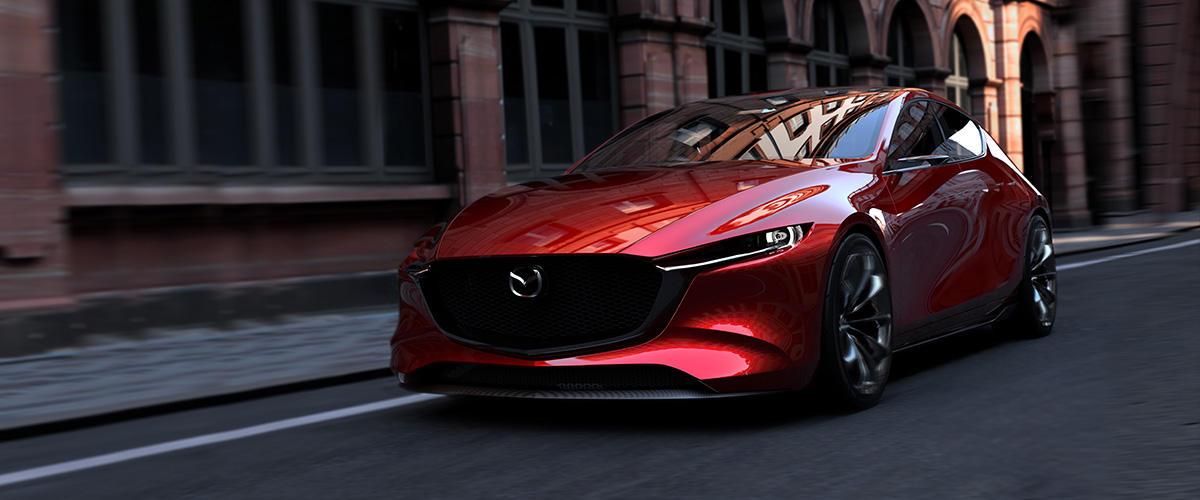I talk an awful lot about electric cars on my podcast, and for good reason. They’re widely accepted as the future of motoring, whether they be powered exclusively by batteries, by hydrogen fuel cells or some sort of capacitor setup we’ve yet to see. And the reasons for this are myriad - EVs produce fewer carbon emissions, they have fewer moving parts so are in theory more reliable, they make less noise and better pair with autonomous systems and, critically, there is a finite amount of oil on this planet to power internal combustion cars.
But the truth is, and I’ve spoken to this before, I love gasoline. I love pumping it into a tank for five minutes and turning a key or pressing a button and having an electric motor spit that gasoline into a chamber whose sole purpose is to contain a tiny explosion ignited by a little electric spark. And, more than anything else, I love the sound it makes. I love the fire and the fury of a singing six cylinder and the rumbling burble of a V8, even at idle. I love the angry beehive of a turbocharged four cylinder or the raucous rasp of a V-twin, or especially my inline triple. And I will miss all of those things when gasoline engines go away.
But fortunately, I don’t think we’re in danger of that, at least not for many years. In 2017, electric vehicles made up less than a tenth of a percent of total vehicle sales in the United States, and, sure, they did better elsewhere in the world where incentives are higher or there are more models available or where the income gap is narrower and people have more funds to spend on more expensive electric vehicles, but most analysts predict it will be at least 2025 before electric vehicles are on parity with internal combustion cars in terms of costs.
With the average price of new cars rising every year and the income gap only widening, an increasing majority of the auto buying public will be priced out of electric vehicles even when their average price matches gasoline cars. Buyers will continue to buy used petrol-powered cars until the third or fourth generation of EVs are out and the initial versions have depreciated to the point where they’re affordable. Even then, you’ll have the issue of battery life/reliability and the question of whether infrastructure has built up enough for buyers to see EVs as worthy competitors to good old gas engines.
According to a new report by the University of Michigan Transportation Research Institute, the rate of car ownership in the US is increasing, from .756 vehicles per person in 2015 to .766 vehicles per person in 2016, so there’s a very real chance that, of the people who will be buying an electric car, they’ll be buying it to complement their existing gas vehicles or to serve as a commuting car.
Another report from Bank of America predicts that the U.S. will reach peak oil demand in 2030, meaning there will be no further growth in the demand for oil or gasoline. This, they say, will be directly caused by the increasing share of electric vehicles in the automotive marketplace, which is great. Why is it great if I’m trying to make an argument for gas cars? Because less demand means that we could run into oversupply situations where gas gets even cheaper for those holdouts of gasoline cars like myself and low income households who can’t afford electric vehicles. There’s obviously a risk that oil companies anticipate this and start to curb their drilling or cut supplies, but, from my knowledge of the oil and gas industry, once a well is tapped, it doesn’t make much sense to just plug it up and leave it if even people are using less of your product. You run that well dry and squeeze it for everything it was worth. Companies may not drill new wells or invest so much in shale, which would be a great thing for the environment, so either way we kind of win.
Plus, innovation continues with gasoline engines. Companies are finding new and creative ways to increase efficiency and maximize output. Take Mazda’s Skyactiv-X technology, which achieves 30% better fuel economy than its already good Skyactiv-G engines like I had in my Mazda 3 (R.I.P.). Those will debut in 2019 while the Volvos and BMWs of the world transition their lineups to all-electric and hybrid vehicles. Indeed it’s telling that the first companies committing to move to all-electrified cars are luxury automakers, because they know the cost is higher and their buyers can afford it.
But for every Volvo XC90, there’s a Shelby Mustang and for every Honda NSX, a Dodge Demon. In fact, there have been many cars announced in the past year that rely solely on burning dinosaurs to go fast and create a great time, and there’s no reason to think that’s going to stop, especially when mixed with some hybrid and electric vehicles, auto manufacturers can meet corporate average fuel economy standards and still have room to blow on gas guzzling performance cars for the masses. Plus the low-cost cars will still be gas-powered, as will the classic cars and trailer queens and garage angels that have been sold up to this point and will be driven on weekends by old guys who share the same love for the symphony of combustion that I have. So I’ll continue to talk about electric cars and they’ll very much continue to be the future of motoring, but that doesn’t have to mean that internal combustion and gasoline will be relegated exclusively to our past.
Authored by
Devlin Riggs










